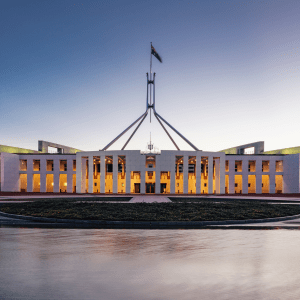# let's Grow Your Hand
Study in the Australia: Your Roadmap to Success!
Navigate Your Path to Success - Expert Guidance for Studying Abroad in the Land of Opportunities!
Why Study in Australia?
Australia consistently ranks high in global education indices, ensuring that students receive top-notch education and exposure to a multicultural society. The emphasis on innovation and technological advancement makes Australian institutions leaders in various fields.
Academic Excellence
Benefit from world-renowned universities and cutting-edge research, ensuring a top-tier education that opens doors globally.
Diverse Culture
Immerse yourself in a melting pot of cultures, ideas, and perspectives, fostering personal growth and a truly enriching experience.
Career Opportunities
Gain access to a dynamic job market with ample internship and post-graduation employment opportunities, setting the stage for a successful career.
Innovation Hub
Join a country at the forefront of innovation and technology, offering a stimulating environment for creativity and entrepreneurial pursuits.
Quality of Life
Experience a high standard of living, excellent healthcare, and a variety of recreational activities, making the Australia a well-rounded and desirable destination for international students.
The Transformative Benefits of Choosing to Study
Discover the world, expand your mind! Choose to study abroad for top-notch education, cultural immersion, and personal growth. Your journey to global success starts here!
Choose Your Desired Courses
Discover the world, expand your mind! Choose to study abroad for top-notch education, cultural immersion, and personal growth. Your journey to global success starts here!
Choose Your Interested Location in Australia
Discover academic excellence amidst stunning landscapes. Study in Australia for a vibrant cultural experience, renowned universities, and opportunities in tech and entertainment industries.



Sydney
- Phone:+1 (859) 254-6589
- Email:info@example.com



Melbourne
- Phone:+1 (859) 254-6589
- Email:info@example.com



Brisbane
- Phone:+1 (859) 254-6589
- Email:info@example.com



Perth
- Phone:+1 (859) 254-6589
- Email:info@example.com



Adelaide
- Phone:+1 (859) 254-6589
- Email:info@example.com



Gold Coast
- Phone:+1 (859) 254-6589
- Email:info@example.com



Newcastle
- Phone:+1 (859) 254-6589
- Email:info@example.com



Canberra
- Phone:+1 (859) 254-6589
- Email:info@example.com
Admission requirements for studying in Australia
Planning to study in the Australia? Let us help you get started with the basic admission requirements that you will need.
Preparing for Examinations
Pursuing a course in the Australia begins with competitive and rigorous exams such as GRE/GMAT for postgraduate studies and IELTS or TOEFL for English proficiency. Some programs do not require GRE/GMAT. Thorough preparation is vital as these exams significantly influence university admissions.
University Application Process
The application process involves submitting academic transcripts, letters of recommendation, a statement of purpose, and exam scores. Meeting application deadlines and following specific university guidelines are critical to success.
Figuring Out Your Finances
A full-time program in the US can cost up to ₹ 70Lacs. Planning your finances is essential, considering options like scholarships and loans, though the latter may come with high-interest rates.
Visa Process
Applying for a student visa entails presenting the necessary documentation, attending an interview, and paying a fee. It is advisable to start this process early to avoid delays.
Booking Your Travel
Early travel bookings are recommended, as costs can be high, especially during peak seasons. Consider budget airlines and travel packages to minimize expenses.
Finalizing Your Stay
The cost of accommodation varies based on location and preferences. Exploring housing options early allows for a more budget-friendly selection, whether choosing university housing or private rentals.
How You Can Manage expenses while studying in the Australia
Our programs offer financial aid and the chance to study in Australia at low cost. Here's how international students in Australia manage their living expenses while studying there.
Opting for hybrid programs, which combine online and in-person classes, can offer significant cost savings. These programs allow students to complete a portion of their coursework remotely, reducing expenses associated with accommodation, transportation, and on-campus living.
The flexibility of hybrid programs enables students to strike a balance between academic pursuits and managing their budget effectively.
Australia is home to numerous institutions and organizations that offer a wide range of scholarships for international students. These scholarships can cover tuition fees, living expenses, or a combination of both. It is crucial for students to research and apply for available scholarships well in advance.
Many academic institutions and governmental bodies provide financial aid based on merit, need, or specific criteria related to the student’s field of study. Applying for scholarships can significantly alleviate the financial strain of studying abroad.
Taking out student loans is a common method for funding education in Australia. Financial institutions, both in Australia and in the student’s home country, often provide loans specifically tailored for international students. Before opting for a loan, it is essential to thoroughly understand the terms and conditions, interest rates, and repayment plans.
Students should explore government-sponsored loan programs and private financial institutions to identify the most suitable loan options that align with their financial capacity.
Australia allows international students to work part-time during their studies. Engaging in part-time employment not only provides students with valuable work experience but also contributes to covering living expenses. Most students work in sectors such as retail, hospitality, or on-campus roles.
It is important, however, to strike a balance between work and academics, ensuring that employment commitments do not compromise the quality of education.


























Everything You Need To Know About Australia
Australia, the world's largest island and smallest continent, is a country like no other. Situated in the Southern Hemisphere, it is surrounded by the Indian and Pacific Oceans, boasting over 25,000 kilometers of stunning coastline. With its vast expanse of diverse landscapes, from pristine beaches to rugged outback regions and lush rainforests to vibrant cities, Australia offers something for everyone.
This sun-kissed nation is home to a rich indigenous history spanning thousands of years before European settlement. Aboriginal culture permeates through art forms, storytelling traditions, and sacred sites across the country.
When it comes to economy, Australia thrives on industries such as mining (with substantial mineral resources), agriculture (exporting wheat and wool), manufacturing (automobiles and machinery), services (finance and tourism), and more recently technology innovation.
The government operates under a parliamentary democracy with Queen Elizabeth II as its monarch. It consists of six states - New South Wales, Queensland,Victoria,Tasmania,South Australia,and Western Australia; along with two mainland territories - Australian Capital Territory (ACT)and Northern Territory(NT).
With a population exceeding 25 million people hailing from various cultural backgrounds,Australia embraces diversity.
The fusion of different cultures has led to unique culinary experiences,music festivals,and celebrations that make this country truly multicultural.
From laid-back beach towns where surfing is a way of life,to bustling metropolises like Sydney,Melbourne,and Brisbane offering vibrant arts scenes,cutting-edge cuisine,and buzzing nightlife,the lifestyle in Australia caters to all tastes.
Don't forget about sports! Aussies are known globally for their love for cricket,rugby,Australian rules football,soccer,and more!
Australia's geography showcases awe-inspiring wonders.
Ayers Rock(Uluru) rises majestically in the heartland while The Great Barrier Reef stretches along the northeastern coast.
Kangaroo Island,Hunter Valley,Wineglass Bay,and The Twelve Apostles are just a few more natural gems worth exploring.
Australia's history dates back over 50,000 years with the arrival of Indigenous Australians. These indigenous people have a rich cultural and spiritual connection to the land, with over 250 distinct language groups and diverse traditions.Australia has a rich and diverse history that dates back thousands of years. The Aboriginal people are believed to have been the first inhabitants, arriving on the continent around 65,000 years ago. They lived in harmony with the land for centuries, developing complex cultures and spiritual beliefs.
The arrival of European settlers in 1788 marked a significant turning point in Australia's history. Captain James Cook claimed the eastern coast for Britain, leading to British colonization and the establishment of penal colonies. This period saw convicts transported from Britain to serve their sentences and helped shape early Australian society.
In the late 19th century, Australia achieved federation and became an independent nation in 1901. Since then, it has experienced rapid growth and development across various sectors including agriculture, mining, manufacturing, and services.
Australia played a crucial role during World War I and II as part of the Allied forces. These conflicts had a profound impact on Australian society as many soldiers lost their lives or returned home with physical or psychological scars.
Today, Australia is known for its multiculturalism and commitment to reconciliation with its Indigenous population. It continues to evolve as a modern country while recognizing its historical roots.
Understanding Australia's history provides valuable insights into its cultural diversity.
Australia possesses one of the most robust and stable economies globally, renowned for its elevated standard of living, advanced infrastructure, and varied industries. The nation operates as a mixed-market economy, incorporating elements of both capitalism and socialism.
The abundance of natural resources stands as a key driver of Australia's economy. The country is endowed with substantial reserves of coal, iron ore, gold, uranium, and natural gas, forming the cornerstone of its flourishing mining industry, which significantly contributes to the GDP.
In addition to mining, Australia boasts a thriving agricultural sector, producing a diverse array of products such as wheat, barley, beef, dairy, fruits, and vegetables. This sector plays a pivotal role in ensuring food security, catering not only to Australians but also to international markets.
The services sector is another major contributor to Australia's economy, encompassing industries like tourism, education, healthcare, finance and insurance, information technology and telecommunications, retail trade, and more.
The government plays a pivotal role in upholding economic stability through the implementation of prudent fiscal policies and the encouragement of foreign investment. Various incentives are offered to attract businesses globally while ensuring equitable competition within domestic markets.
Australia's flourishing economy presents abundant opportunities for growth and prosperity. With its diverse industries and business-friendly environment, the country continues to attract investors worldwide. Whether one is aspiring to establish a new business or pursue career prospects, Australia stands out as an ideal destination. Its robust economic foundations, coupled with political stability, render it an appealing choice for individuals seeking financial security or aiming to leave a mark on the global stage.
Australia has a parliamentary democracy, which means that the government is elected by the people. The country operates under a constitutional monarchy, with Queen Elizabeth II as the head of state. However, her role is largely ceremonial and she does not have any real power in the day-to-day running of the country.
The Australian government is divided into three branches: executive, legislative, and judicial. The executive branch consists of the Prime Minister and his or her cabinet, who are responsible for implementing laws and policies. The legislative branch is made up of two houses: the House of Representatives and the Senate. These two bodies are responsible for making laws and debating important issues.
One unique aspect of Australia's government is its compulsory voting system. This means that all citizens over 18 years old are required to vote in federal elections. Failure to do so can result in a fine or even imprisonment.
In terms of political parties, Australia has several major ones including Labor Party, Liberal Party, National Party, and Greens party among others. These parties compete against each other in elections to win seats in parliament.
Overall., Australia's government structure promotes democratic values and ensures that power remains balanced between different branches.
Australia is a vast and diverse country, known for its stunning landscapes, vibrant cities, and unique wildlife. With such a rich tapestry of natural beauty and cultural heritage, it's no wonder that Australia has become an attractive destination for people from all over the world.
The population of Australia is approximately 25 million people. It is a multicultural society with residents from various ethnic backgrounds, including Indigenous Australians as well as migrants from Europe, Asia, the Middle East, and Africa. This diversity has contributed to Australia's rich cultural fabric and has led to the development of a harmonious multicultural community.
The majority of Australians live in urban areas along the coastlines, particularly in major cities like Sydney Melbourne and Brisbane. These cities offer excellent opportunities for employment, education, healthcare facilities as well as recreational activities.
Australia's population growth rate has been steadily increasing over the years due to both natural increase (births minus deaths) and net overseas migration. The country offers economic stability which attracts many skilled workers looking for better prospects.
In recent years there have also been efforts made by the government to encourage regional migration by offering incentives such as visa pathways or sponsorship programs which aim at easing congestion in major metropolitan areas while boosting economic development in regional centers.
Australia's population reflects its reputation as a land of opportunity where individuals from different walks of life can come together to build a prosperous future.
Australia is a country known for its diverse and vibrant culture. With influences from Indigenous Australians, European settlers, and immigrants from all over the world, the Australian culture has become a melting pot of traditions, customs, and cuisines.
One of the defining features of Australian culture is its laid-back lifestyle. Aussies are known for their love of outdoor activities like barbecues at the beach or in their own backyards. They value spending time with family and friends, often organizing gatherings to celebrate special occasions or simply enjoy each other's company.
Sports play a significant role in Australian culture as well. Whether it's cricket during summer or Aussie Rules football during winter, Australians have a deep passion for sports. The annual Melbourne Cup horse race even stops the nation every November!
In terms of cuisine, Australia offers a wide variety of flavors influenced by different cultures. From traditional Indigenous bush tucker to dishes inspired by Asian, Mediterranean, and Middle Eastern cuisines - there is something to satisfy every palate.
The arts scene in Australia also thrives with numerous theaters, art galleries, music festivals showcasing both local talent and international acts. Additionally, Aboriginal art holds great significance in Australian culture with its unique storytelling through intricate designs.
Overall,Australia's rich cultural tapestry contributes to an inclusive society that embraces diversity while still retaining its unique identity.
There is always something new to explore and experience in this vast land down under!
Geography plays a vital role in shaping the diverse landscape of Australia. With a total area of 7.6 million square kilometers, it is the world's sixth-largest country. From stunning coastlines to vast deserts and lush rainforests, Australia offers a breathtaking variety of natural wonders.
The continent is surrounded by three oceans: the Pacific Ocean to the east, the Indian Ocean to the west, and the Southern Ocean to the south. This unique coastal geography provides Australians with access to beautiful beaches and thriving marine life.
Inland, you'll find sprawling plains known as "the Outback," characterized by arid deserts and red sand dunes that stretch for miles. The famous Uluru (Ayers Rock) rises majestically from this desert landscape, showcasing Australia's ancient geological history.
Moving towards the north, tropical rainforests thrive in areas such as Queensland's Daintree Rainforest – one of the oldest rainforests on Earth. These lush environments are home to an incredible array of plant and animal species found nowhere else on earth.
Australia also boasts stunning mountain ranges like the Great Dividing Range along its eastern coast and The Kimberley in Western Australia. These rugged landscapes provide opportunities for hiking enthusiasts and adventure seekers alike.
The country is rich in natural resources with significant mineral deposits including gold, coal, iron ore, and uranium contributing heavily to its economy.
With such diverse geography ranging from pristine beaches to expansive outback regions brimming with unique wildlife - there truly is something for everyone when exploring this vast land down under!
Australia's climate is incredibly diverse and varied, offering something for everyone. From the tropical rainforests of Queensland to the arid red deserts of the Outback, Australia experiences a wide range of weather patterns throughout its vast expanse.
In the north, you'll find a wet and humid climate with distinct wet and dry seasons. The northern regions experience monsoonal rains during the summer months, which can lead to flooding but also provide much-needed relief from the heat.
Moving southwards, you'll encounter more temperate climates characterized by mild winters and warm summers. Cities such as Sydney and Melbourne enjoy pleasant weather year-round, making them popular destinations for tourists and residents alike.
Venturing further inland towards the desert regions, temperatures can soar to extreme highs during summer days while dropping significantly at night. The arid landscapes are harsh but captivating in their own way.
In contrast, Tasmania experiences cooler temperatures due to its proximity to Antarctica. This island state boasts stunning natural beauty with rugged mountains and pristine wilderness areas that are perfect for outdoor enthusiasts.
Australia's climate offers a little bit of everything – sun-drenched beaches in Queensland, snowy peaks in Victoria's alpine region, vibrant autumn colors in New South Wales – there truly is something for every season and preference in this vast land down under!
Australia is known for its high-quality education system that attracts students from all over the world. The country offers a wide range of educational opportunities, from primary and secondary schools to universities and vocational institutions.
At the primary and secondary level, education in Australia is compulsory for children between the ages of six and sixteen. The curriculum follows a standardized framework called the Australian Curriculum, which covers subjects like English, mathematics, science, history, geography, languages, arts, health and physical education.
After completing their secondary education or equivalent qualification such as Certificate III or IV courses at TAFE (Technical And Further Education) institutes or private colleges; students have numerous options for higher education. Australia has some of the top-ranked universities in the world offering undergraduate and postgraduate degrees across various disciplines.
The teaching methods in Australian universities emphasize practical learning experiences through group projects, presentations, case studies,and internships. This approach not only enhances critical thinking but also prepares students for real-world challenges.
International students planning to study in Australia must obtain a student visa before they can commence their studies. The application process generally requires proof of enrolment in an eligible course or institution recognised by the Australian government.
Overall,Australia's education system provides excellent academic opportunities along with exposure to diverse cultures,resulting in well-rounded individuals ready to excel globally.
To obtain a student visa for Australia, you must meet the following requirements:
- Genuine Temporary Entrant (GTE) requirement: You must demonstrate that your intention is to study in Australia temporarily and not permanently.
- Financial requirements: You must provide evidence of sufficient funds to cover tuition, travel, and living costs. From February 2018, the amount you need to prove you have for living costs (separate from tuition and travel) is set at AUD 21,041 per year for students in Australia.
- English proficiency requirements: You must demonstrate your English language proficiency by providing evidence of your English language test results, such as IELTS or TOEFL.
- Health and character requirements: You must be of good character and meet health requirements. This includes a criminal record check, a penal clearance certificate (or police certificate), or a Character Statutory Declaration Form.
To apply for a student visa, you must:
- Complete the Australian student visa application form (157A) .
- Pay the visa application fee, currently AU$650 (~US$438) in most cases.
- Provide all required documents, including a copy of your passport biodata page.
- Attend an interview if required.
After being granted a student visa, you can work alongside your studies, which can help you earn extra spending money and gain valuable language and cultural experience. It is recommended that you have some Australian currency with you when you land in Australia.
let's Stand Together
Study in the Australia
Find programs that match your eligibility and aspirations then apply with reduced application fees, a free assessment and access to a dedicated advisor.
Latest News
Standards compliant e-business.Phosfluorescently expedite functional products via premium action
items wireless innovation compliant e-business.
Concerned About Expenses? Tips for Managing Your Budget While Studying Abroad
Are you dreaming of studying abroad, immersing yourself in a new culture, and gaining valuable life experiences? The allure of […]
Is Culture Shock Real? Navigating the Uncharted Territories of Studying Abroad
Hey there globetrotters and adventure seekers! Are you ready to embark on a journey that will broaden your horizons, challenge […]
Wondering Where to Begin? How to Choose the Perfect Study Abroad Destination
Are you feeling a little adventurous? Maybe a bit curious to explore the world beyond your campus walls? Well, studying […]
Frequently Asked Questions (FAQs)
Your Go-To Guide for a Smooth Journey to Graduate Success!
Australia offers world-class education, a high standard of living, a diverse cultural experience, and excellent research opportunities. The country is known for its quality universities and globally recognized degrees.
Entry requirements vary by course and institution. Generally, you need to provide proof of English proficiency (like IELTS or TOEFL), academic transcripts, and sometimes letters of recommendation. Each university may have specific requirements.
Tuition fees and living costs vary, but Australia can be considered moderately expensive. However, there are various scholarships available, and part-time work opportunities can help offset living expenses.
Yes, international students in Australia are allowed to work part-time during the academic year and full-time during scheduled breaks. This can be a great way to gain work experience and support your living expenses.
Yes, many Australian universities offer scholarships for international students based on academic merit, leadership qualities, or specific fields of study. Additionally, the Australian government and other organizations provide various scholarship opportunities.
Australia provides a vibrant and multicultural environment. Students can engage in various extracurricular activities, enjoy beautiful landscapes, and experience a welcoming and inclusive culture.
Australia has a well-developed healthcare system. International students are required to have Overseas Student Health Cover (OSHC), which helps cover medical expenses.
Yes, Australia offers post-study work opportunities. The Temporary Graduate visa (subclass 485) allows international students to work in Australia temporarily after they finish their studies.
To apply for a student visa, you need a Confirmation of Enrolment (CoE) from your chosen institution, proof of financial capacity, proficiency in English, and meet health and character requirements. The application is submitted online through the Department of Home Affairs website.
Australian universities provide a range of support services for international students, including orientation programs, academic counseling, language support, and cultural integration activities. Additionally, there are student organizations and support networks to assist with various aspects of student life.
Useful Links
Subscribe Now
Don’t miss our future updates! Get Subscribed Today!
©2024. Geniustudy. All Rights Reserved.




